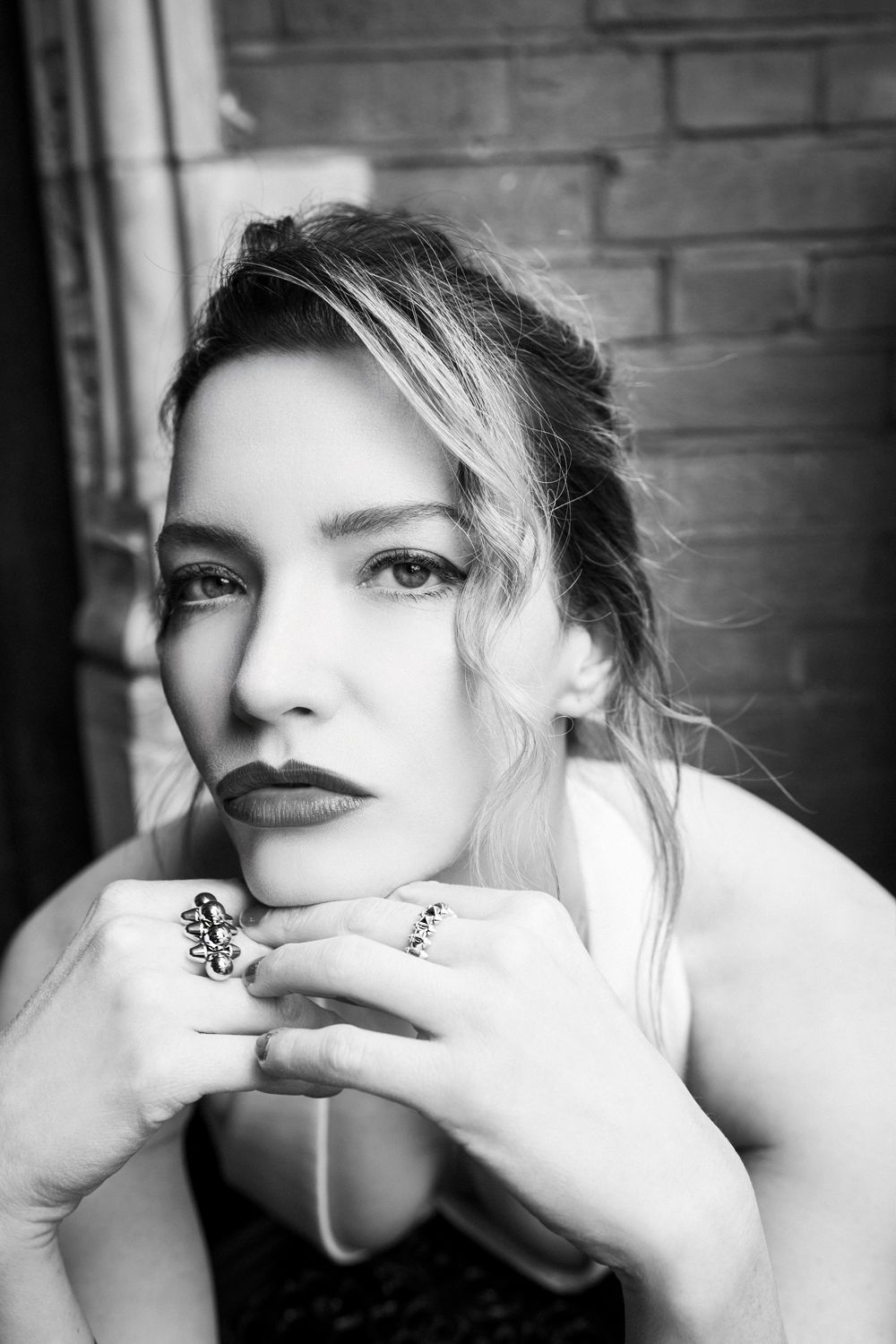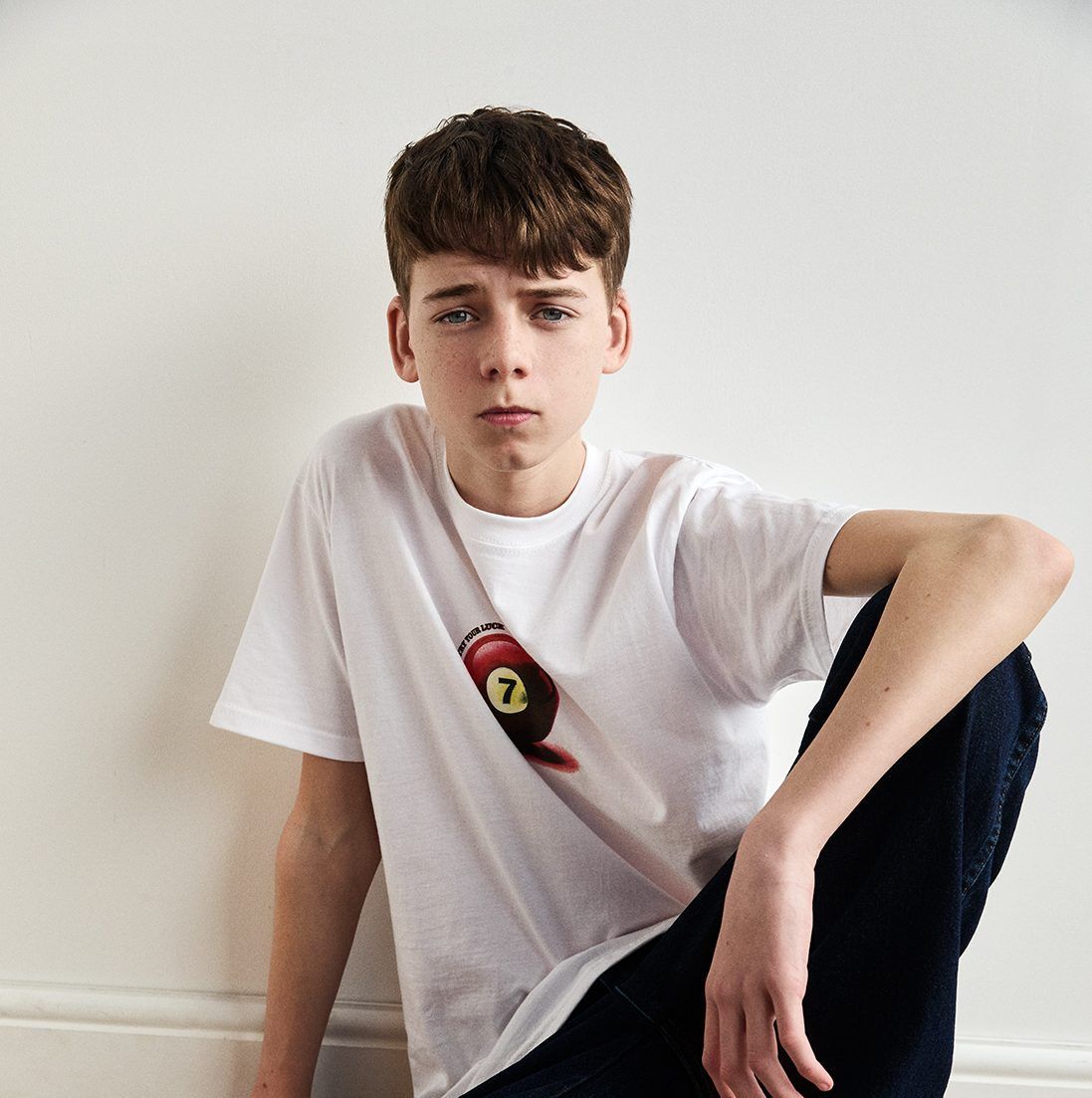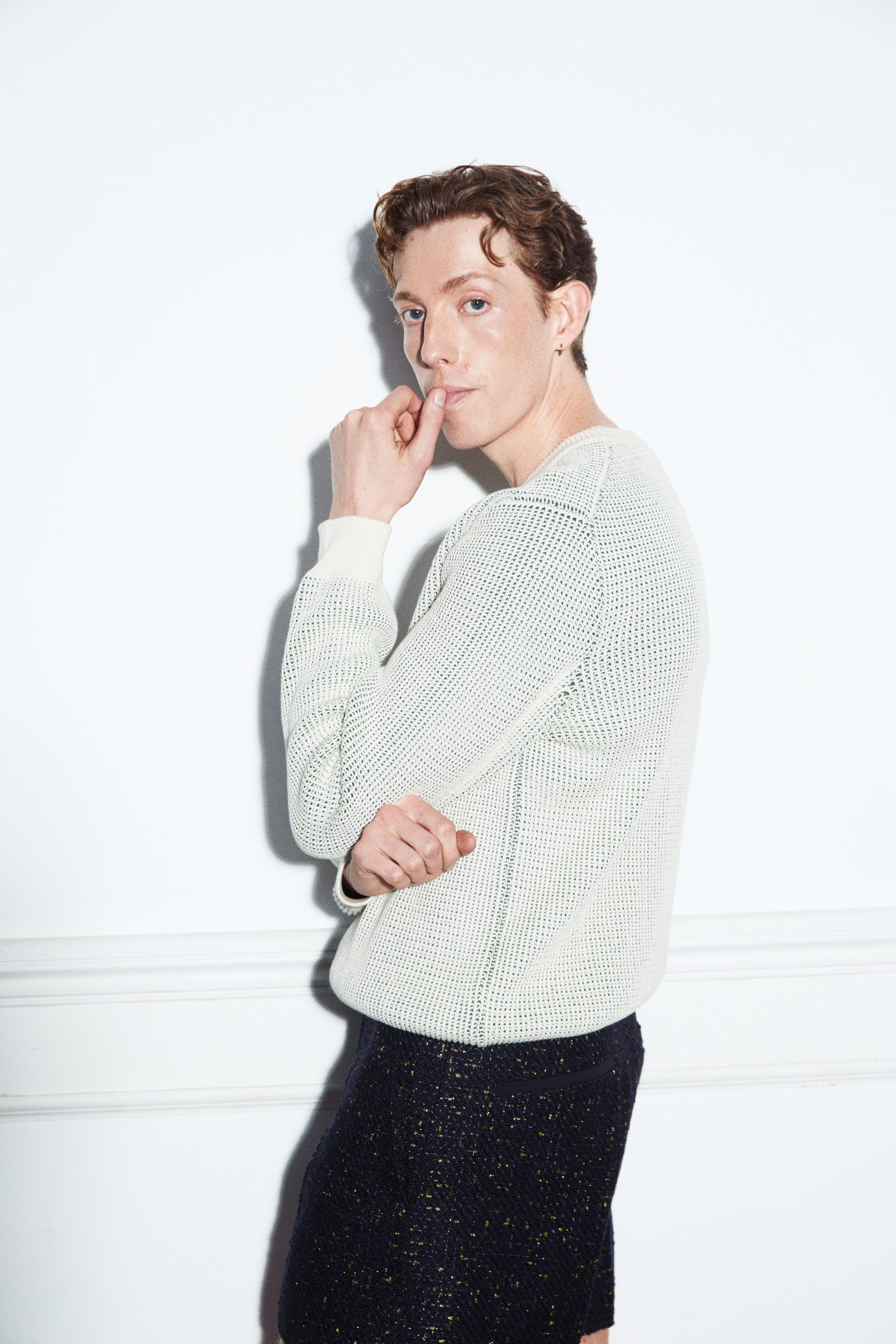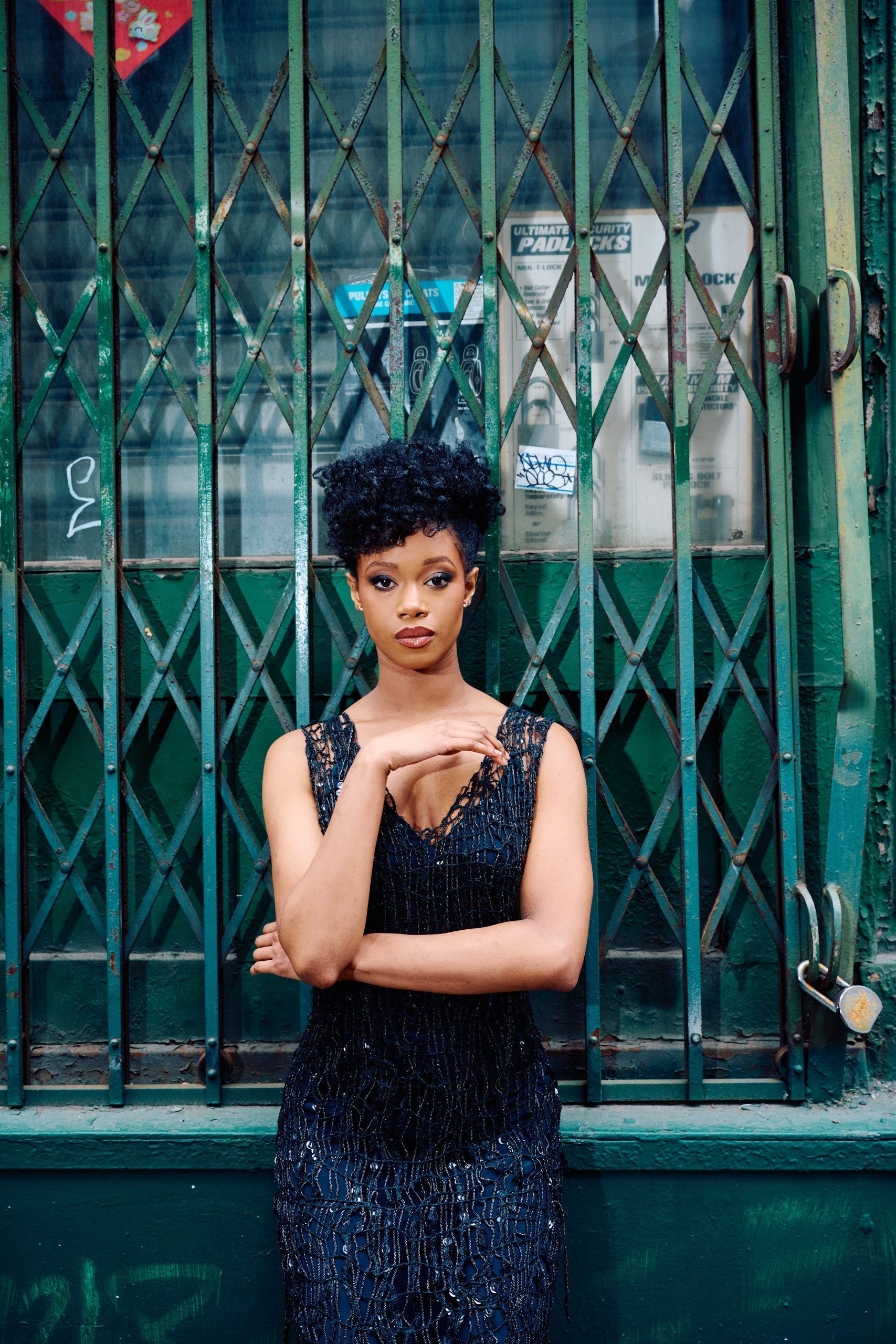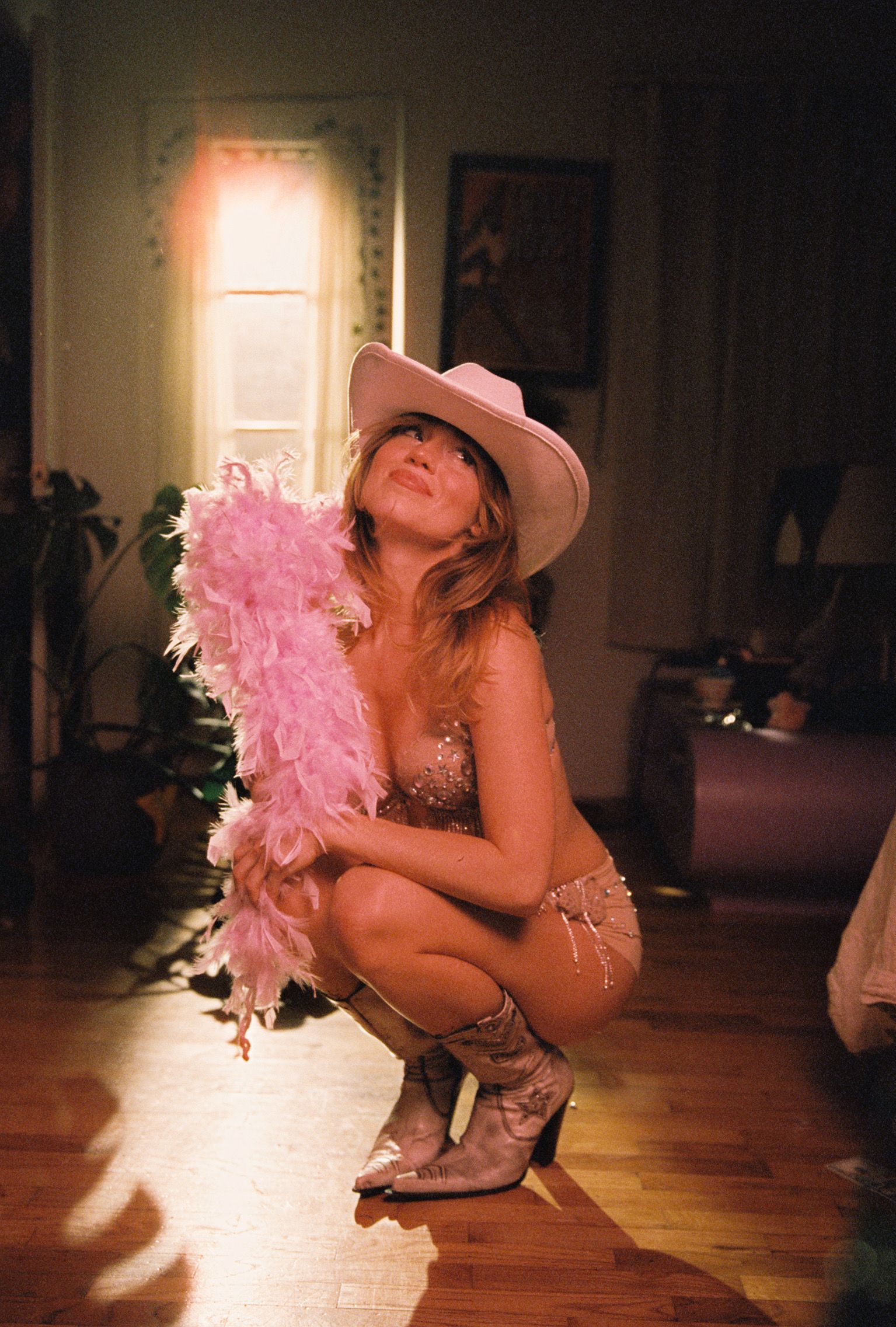Soft spoken and charmingly straight to the point, Talulah Riley just might be the prototype of the ideal conversationalist. It’s no wonder ex-husband Elon Musk fell in love at first chat and proposed to her after ten days.
Cerebral and creative, she’s as engaging while championing pattern making techniques of a pair of Vivienne Westwood trousers as she is when philosophizing possibilities of a female-dominated new world order.
This month Talulah flexes her prowess portraying Dame Vivienne Westwood on the new FX series, Pistol, an edge-of-your-seat recount of the chaotic, triumphant and at-times heartbreaking journey of punk music’s most influential band, the Sex Pistols. Contemporaneous with her role of playing one of fashion’s most formidable pioneers, Riley is set to release her second novel, The Quickening, a daring, dystopian tale in which a new, isolationist Britain has evolved into a one-party government where men are subdued by the women who reign supreme in the society. On the eve of the debut of Pistols, Talulah conversed with 1883 about her cinematic life in Westwood’s world, the fluctuating tides of feminism, and what life might look like if women ruled the world.
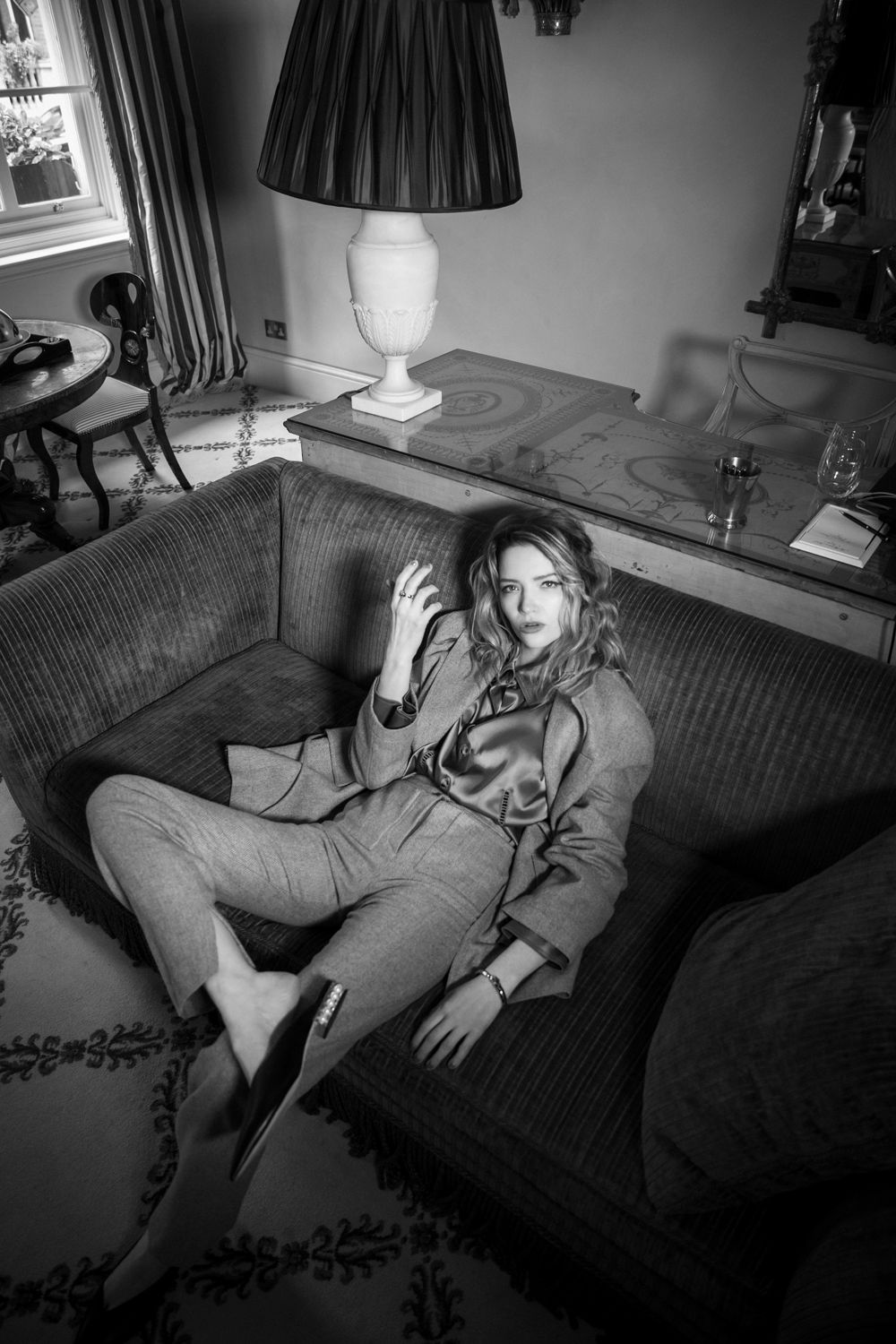
I’m always intrigued by a Vivienne Westwood portrayal, so when I found out about you playing Vivienne Westwood in Pistol, and then read the synopsis for your new book, The Quickening, I was ready to unpack it all with you. How did you prepare for the role of portraying Dame Westwood?
I read her autobiography—before I got the part, when I was set to audition. And it’s a really good read— sort of ghostwritten…I met Vivian before we started filming and I got to go down to the Vivienne Westwood headquarters and meet her at her offices. She was very kind, and lots of fun, and told me a bit about the 70’s, and what it was like at the time…We also had a great researcher as well— someone named Ruth— who found lots of archive footage, because the Vivienne Westwood of today is not the Vivienne Westwood of the 70’s when she was a younger person starting out. So, it was interesting to see footage of her at that date, and just how her voice— which is sort of different from how it is now— her mannerisms…and she wasn’t the doyenne of this huge fashion house. She just had this boutique on the King’s Road and seeing the news crews come in and interview her, it’s fascinating just from a social history perspective.
It’s interesting because in reading about Vivienne , and watching different documentaries— the most recent by Lorna Tucker— I found out she was actually trained as a school teacher, not as a fashion designer. And I’m curious if at this stage in her life—especially when you were engaging with her about your role as her— Vivian “the teacher” is emerging, at least from the breadth of her experience. Was that a side of her that you got to experience—because she was “teaching” you about who she was?
Well, I suppose I found her intimidating in the way that I found quite a strict teacher at school intimidating. But it’s funny, in the script there’s quite a lot about her and her home life and being a mother, and the way she cares for the boys [her sons]. I think it comes out in our script— that aspect— for sure. But she was so innovative in what she did— she actually invented the anarchy symbol, which most people don’t know…Because the symbol is so ubiquitous, you just think of it as this political thing that came to be, but that was a Vivienne Westwood design. And the way she handled cloth— it used to be tailoring, where you get a roll of cloth, and you cut up shapes from patterns and stuff…But again, being so ahead of her time, she didn’t want to waste any of the fabric and that’s why a lot of the punk stuff has little bits tied and added on, or like the flaps at the fronts of the trousers— because she used the whole role of cloth. She didn’t just use the bit that she cut out.
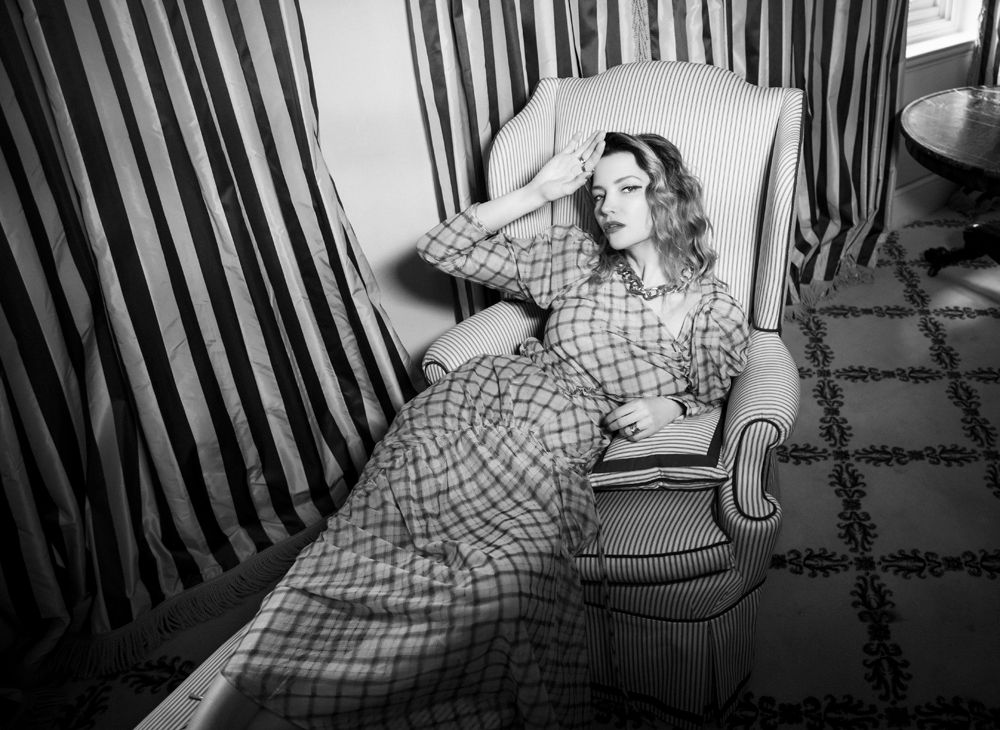
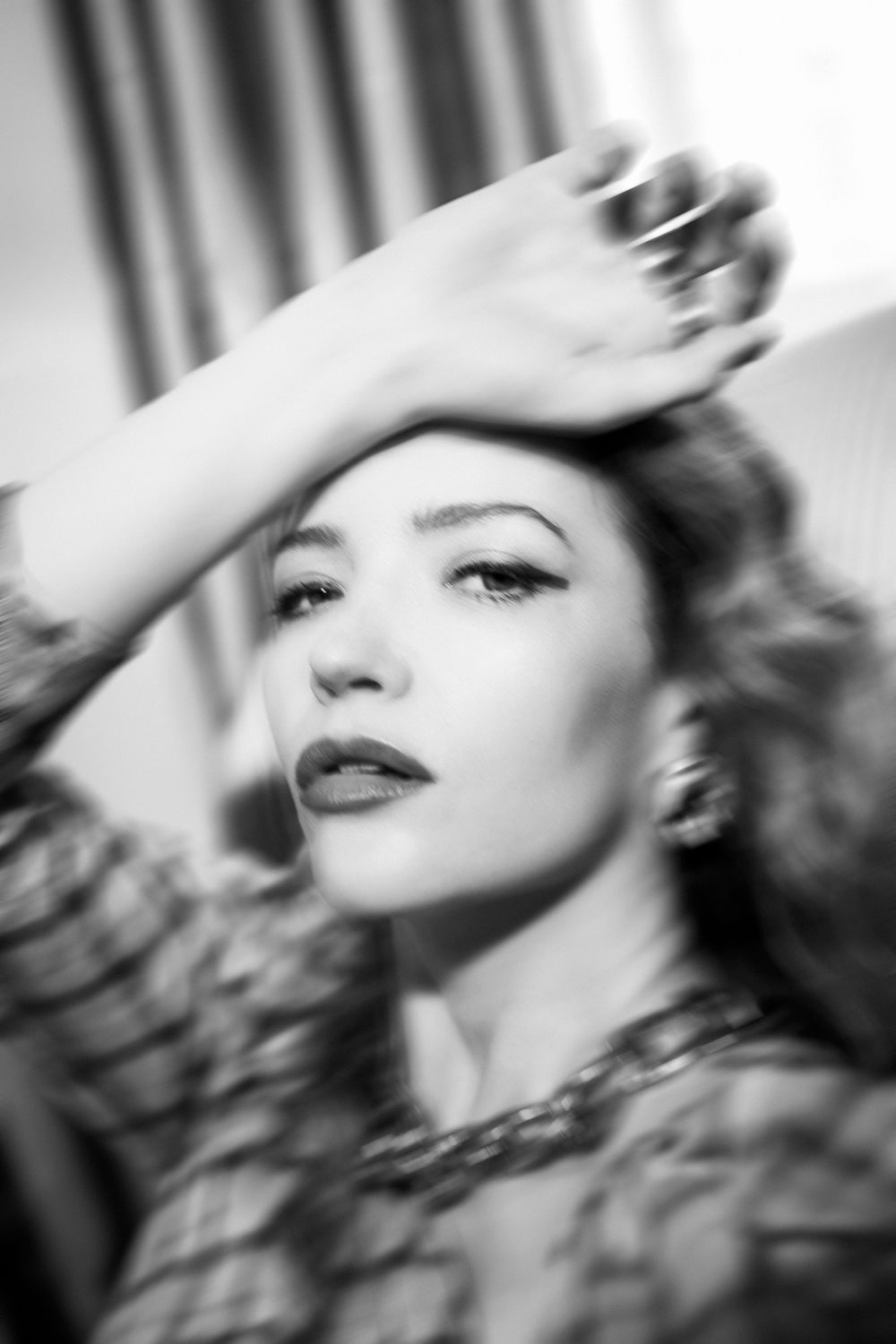
Sustainability.
Yeah. And she used to stick bits of tire, and boiled chicken bones…all kind of things onto the clothing…Safety pins and studs, which can look passé now, but that’s because at that time in the 70’s, nothing like that had ever been done before. It was completely mind-blowing. I mean, what a creative force. And I suppose being an outsider in the fashion industry in that way is what gave her the ability to be that unique.
With that level of fierceness that you’re describing right now— and the fact that you met her and you were a little bit intimidated— did you have any trepidation in acting out the role?
No…I think the thing is everyone acknowledges that what we’re doing is a sort of fictional retelling of the Sex Pistols story. It’s not like a documentary…And while it was great meeting Vivian and getting a sense of her physicality, I didn’t want to do an impression. I wanted to go with what was scripted, and so I tried to take an essence of Vivienne Westwood— a young Vivienne Westwood. But then I handled the part the way I would any other script. Sort of like if you are playing an adaptation of a beloved book. You know, I played Mary Bennett in Pride and Prejudice— that was the first film role I had— and that is a beloved fictional character…people view Mary Bennett with all sorts of qualities, and she means a lot to a lot of people…But at the end of the day, you have to go with what’s in the script and take as much of that as you can, but bring your own thing to it. And that’s what I tried to do when playing Vivian. With all respect and love for the real woman, there’s no way to encapsulate that in a sort of film sense, so it was sort of an essence of Vivian.
Were there any unexpected parallels that you found between yourself and Vivienne, let’s say in your approach to life? She’s very passionate.
She’s very passionate. I think that it’s a shared characteristic. Something I really admired in the character—which I don’t have— is a very strong work ethic. So that’s something which I’m trying to take forward onto my own life. I mean she was— as scripted— the character was looking after her kids, maintaining her relationship with Malcolm McClaren, starting this huge fashion empire and…the set that we had—their home— was filled with roles of fabric and machines and potato prints. She was surrounded by her work and gave herself over to her work, and that, I think is admirable.
Did you visit 430 Kings Road— just to get the spirit of it?
Afterwards, but not before filming. We went afterwards on a little pilgrimage. And it was really fun to see the space; but it was nice to sort of come to the set clean, in a way. The set was crazy—the boutique, which think they sort of designed as accurate as possible, but it was so bizarre. I mean, it was filled with rubber gimp masks and weird graffiti and tee shirts with all kinds of crazy stuff on them. And you think, “Gosh, this is sort of shocking, now”; but in the 70’s, it must have been really revolutionary.
Really revolutionary. I actually lived in Chelsea— three roads over from the King’s Road— and as much as I love London, which was once to the point of idolatry, I would have appreciated my time in Chelsea so much more had I known this history of the King’s Road. Especially how contrasting that history is with what the King’s Road is today.
Totally. I’m not a student of history, at all. At my school— when I was younger— you had to choose a path; either sciences and geography or history of Britain. Which is one of the great things as an actor— you get to research all kinds of things that you wouldn’t necessarily otherwise do. So to have deep dived into British culture in the 70’s and the music scene, and the fashion scene was really interesting. Like I said, my favourite factoid was the anarchy symbol. Because I knew the symbol and had seen it everywhere, but I had no idea that it was Vivienne Westwood who created it. And just to think about the impact that she and Malcolm had on poplar culture— it’s profound. These two people made such waves. I suppose it’s because they were really the first to do it in modern times, and once something’s been done in that way—once you’ve fought the status quo, and destroyed the status quo— you can’t really do that again…So that’s probably why it’s so long lasting— it’s the sort of trick that you can only pull off once. But it was so fun to learn about that…You know, I watched other shows from the 70’s at the time— games shows, and things like that— and noticed that the audience was different. Almost like an alien species— they were very quiet, very polite—
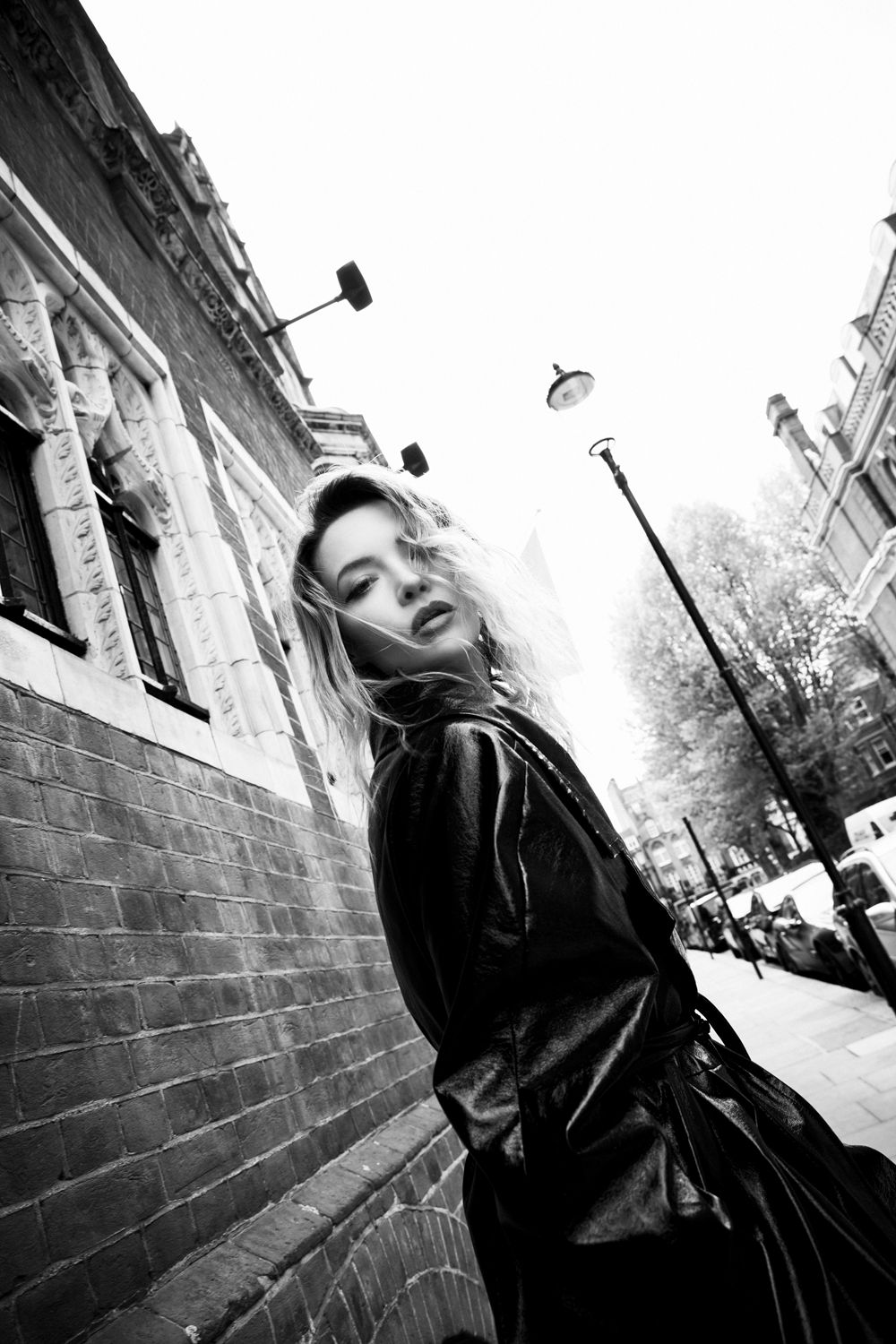
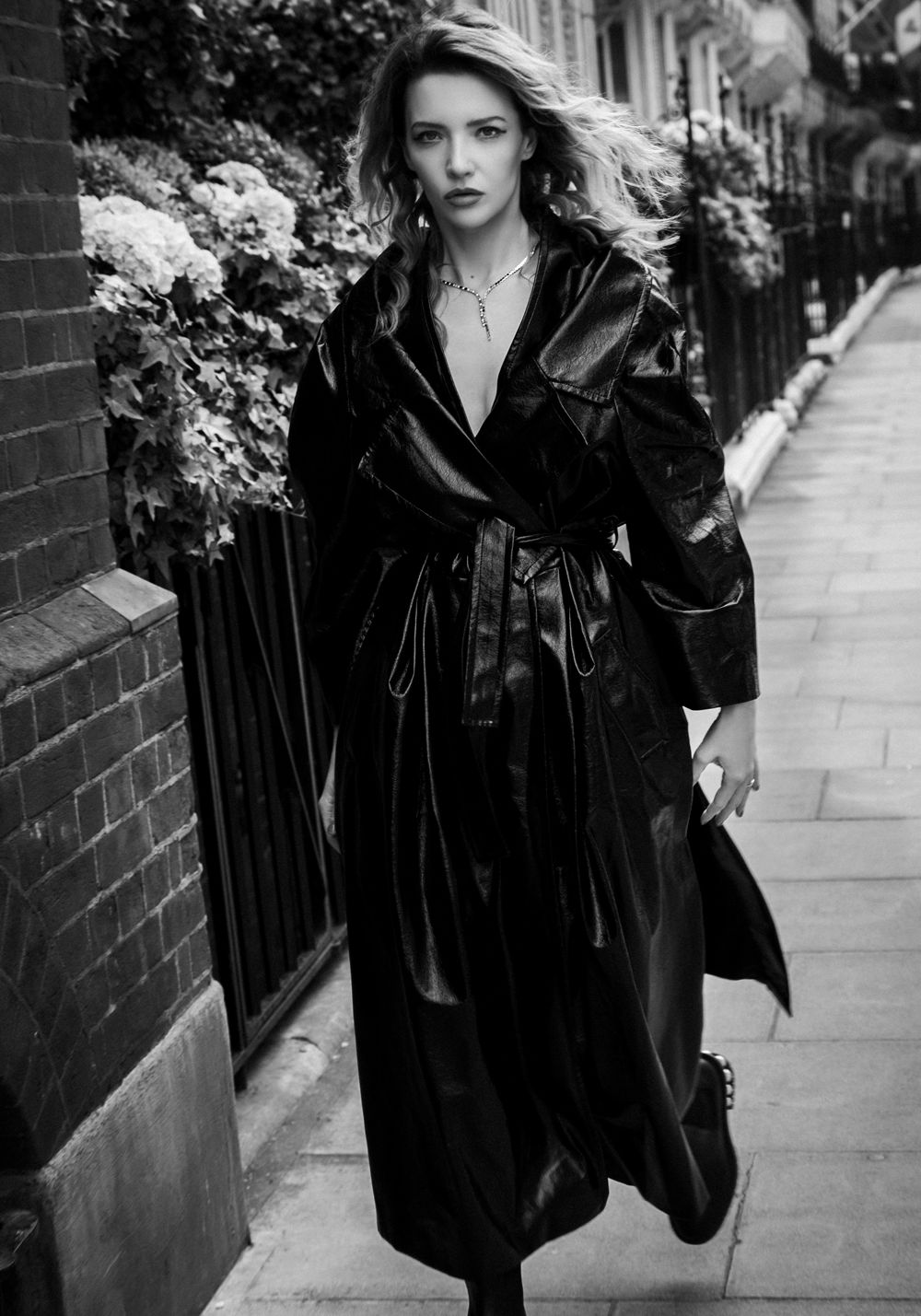
—They were obedient.
Exactly, they were obedient. They all looked sort of the same. They were very quiet and quite timid. And when you compare that to now, where I guess we’re sort of used to reality television and social media and putting on a performance, and it was interesting to see how people were then, and therefore how much of an impact punk had on the people at the time.
Yeah— because the way those audience members behaved on television was reflective of how we—collectively— behaved in real time.
Yeah, it was amazing…Just so different. And it’s really quick as well—in terms of the race of change—because the 70’s was not that long ago.
It’s within a lifetime— within reach.
It’s massively within a lifetime. Danny Boyle— the show’s director— says the Sex Pistols profoundly changed his life. He experienced it the first time around. And that always does my head to think of how quickly things change, and I think our emotional landscape—or the stories we tell ourselves—don’t necessarily keep pace with what’s actually happening in the real world. And I think that’s fascinating.
That’s a lot to think about, and I love what that’s making me think about…One thing that intrigues me about Vivian and Malcolm’s relationship was the dynamic— he was the head, but she was the neck.
Well, I think it’s funny because everyone’s been asking about the sort of feminist thing with the Pistols and what do we think about our characters in that sense, and do we think that they were picked upon, or disenfranchised, or how terrible it was for women at that time… But then again, reading some of the stuff that Chrissy Hynde has said publicly— acknowledging that there have been different waves of feminism, and depending what age we are, we’ve all experienced a different wave— she said that she’d just go and jam with the guys and not think about it in any way. Music and her talent were her calling card to be there. And ultimately, she sold more records than the Sex Pistols did, or anyone else on the show did. And Vivienne Westwood became Vivienne Westwood; if you talk to the average person on the street, I don’t think they know who Malcolm McClaren is, but a lot will know who Vivienne Westwood is. I don’t want to speak for the real Vivienne, but I imagine at the time that is not necessarily an explicit fight that she was doing; I think she was just doing her thing, and it had the outcome that it had. I don’t know how much of that was politically motivated, or if that was just her own personal journey of excellence.
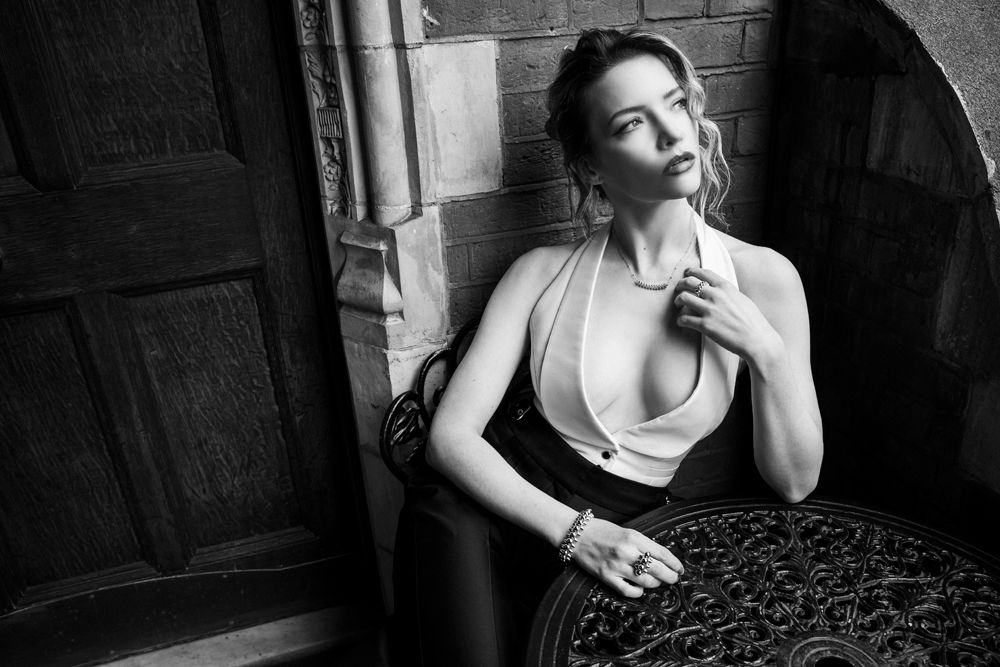
Speaking of women with authority, I’m excited to discuss The Quickening with you. If you could give a 20-second elevator pitch of the storyline, what would it be?
So I’d pitch The Quickening as the Handmaid’s Tale meets 1984. So it’s sort of feminist dystopian fiction. I guess my ultimate thesis is that any extremist ideology is a bad one, no matter what it is. And so, it’s looking at the idea that the world would be so much better run if it were run by women. And a lot of people do say that— though they say it flippantly— you hear it a lot. And I was thinking, it’s quite an othering concept, really, because it’s suggesting that women are either some superior species of human being, or gentle, or we don’t get angry, or stupid, or mad. It’s quite an alienating thing to say, really. So I sort of started from there, and thought “okay, if I’m going for dystopian matriarchy, I gotta go all the way”. And it does get kind of dark.
I appreciate that it gets dark, and isn’t an airy fairy interpretation of women being in control— because we are not perfect…Speaking of imperfections, we know the turmoil— through experience— of living in a male dominated/authoritatively-oriented world. What do you think would be the turmoil faced if women subdued men and had complete, total control?
Well that was the really fun thought experiment. And where that took me was: if any group is going to maintain power over another group, by definition there has to be some form of subjection, or some form of control. If we’re trying to say women are subduing men, how the hell did they do that? And it led me to castration, ultimately.
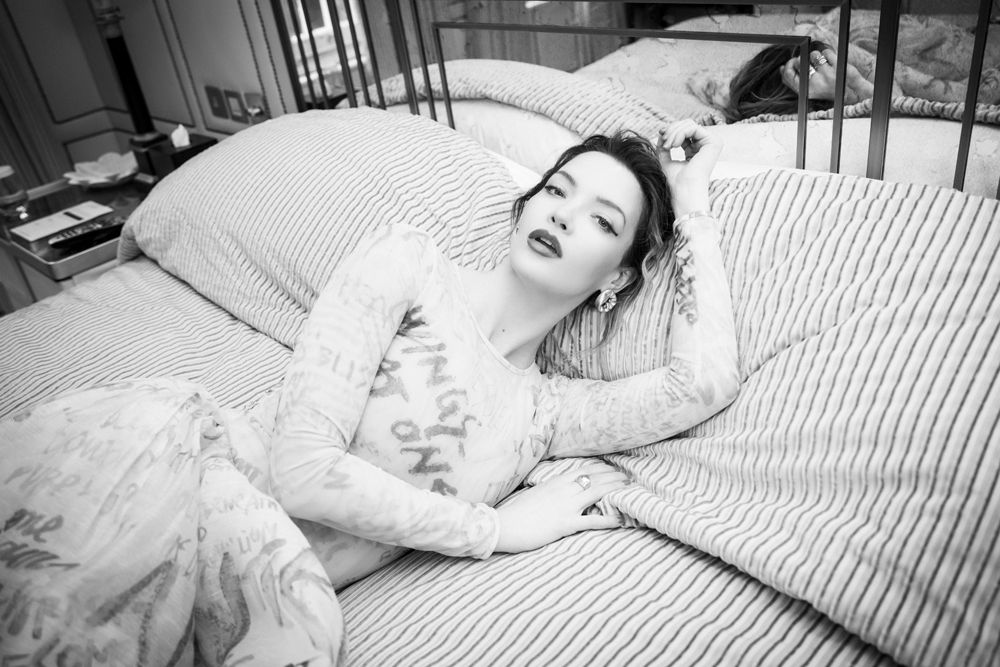
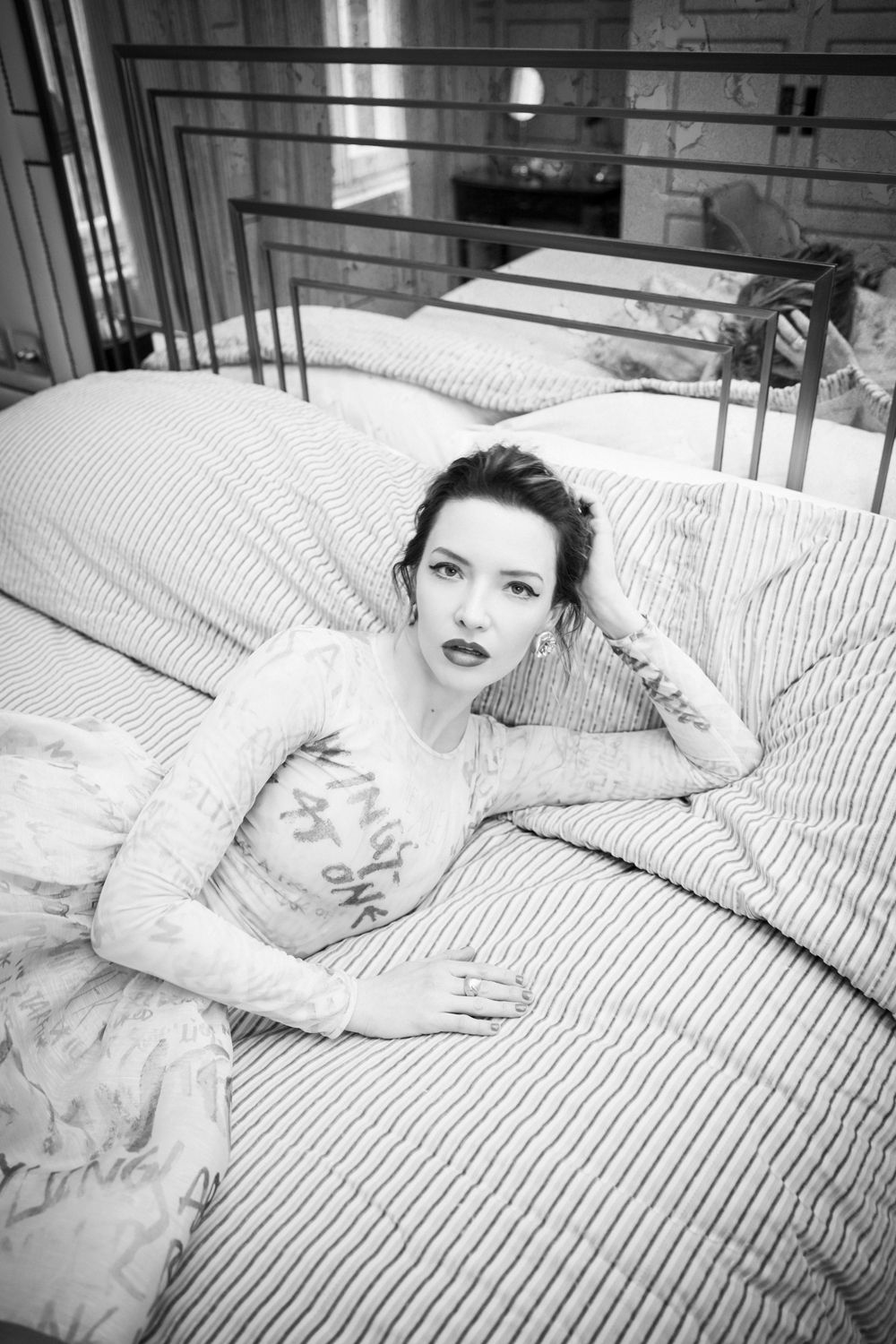
Wow. [Laughter].
Not for all men, just the naughty ones. [Laughter].
Naughty ones, we turn into eunuchs! [Laughter].
Exactly. There are like whole eunuch farms in the novel.
I really am excited to peel through this…Tell me, do you think women would actually opt for a one-party regime? It’s so anti-philosophical, and I think of philosophizing as such a feminine trait.
That’s so interesting because in the book, I have said that philosophizing is sort of a male trait, or being overly intellectual is a male trait. And being intuitive and emotionally driven is a female trait. So there’s a manifesto that the women have— “The Quickening” is the name of the manifesto— and in it they’re telling women not to be overcome by their emotions, but rest on the sum total of human history. Other people have experienced emotional events, and everyone goes through the same journey, so learn from that. Don’t feel that you need to experience it anew. So that’s the sort of philosophy that they’re pushing out…And this is not something that’s meant to be laudable, or aimed for, I was going for a really dark, dark society. But I think that is something that would be a good way of controlling people— subduing the emotional state, or trying to say that it is lesser, somehow. So that’s one of the things I had them doing.
What you’ve written about is quite timely in addressing some of the present anxieties in America. The idea of subduing people’s emotions, and taking control of the population this way are feelings that many Americans have been grappling with over the last two years. And I actually think that writers have a deeper awareness of our capacities as people—psychologically. And I think you [as writers] are more inclined to consider this, because you write about this.
For me, that’s the beauty of art—you get to explore excess, and you get to look at topical issues and you don’t need to have the answer. And in fact, you know there is no real answer because we’re human beings, and everything’s messy. But I think there’s something really cathartic about that for the soul. Looking at everything in this sort of simulated world, or simulated environment, which means you can relax more in your real life…I don’t watch much news. I’m quite insular in a lot of ways…The book is really dark, for example, and when I read a chapter to my mother she was horrified, and she said, “Darling, I didn’t know you were like this— I didn’t know this was in your head!”. And I was like, “Mummy, I’m not like that— this is a book I’ve written, it’s completely separate from who I am as a person”.
What do you think is the likelihood of totalitarianism, or a one-party government actually happening?
I hope not likely; that’s what democracy is for. And I think democracy is something we really really have to protect at all costs. I really believe in democracy, and it’s becoming quite fashionable to decry it as a system. But I don’t think we’ve actually had anything better yet in human history. So you don’t want to throw the baby out with the bath water.
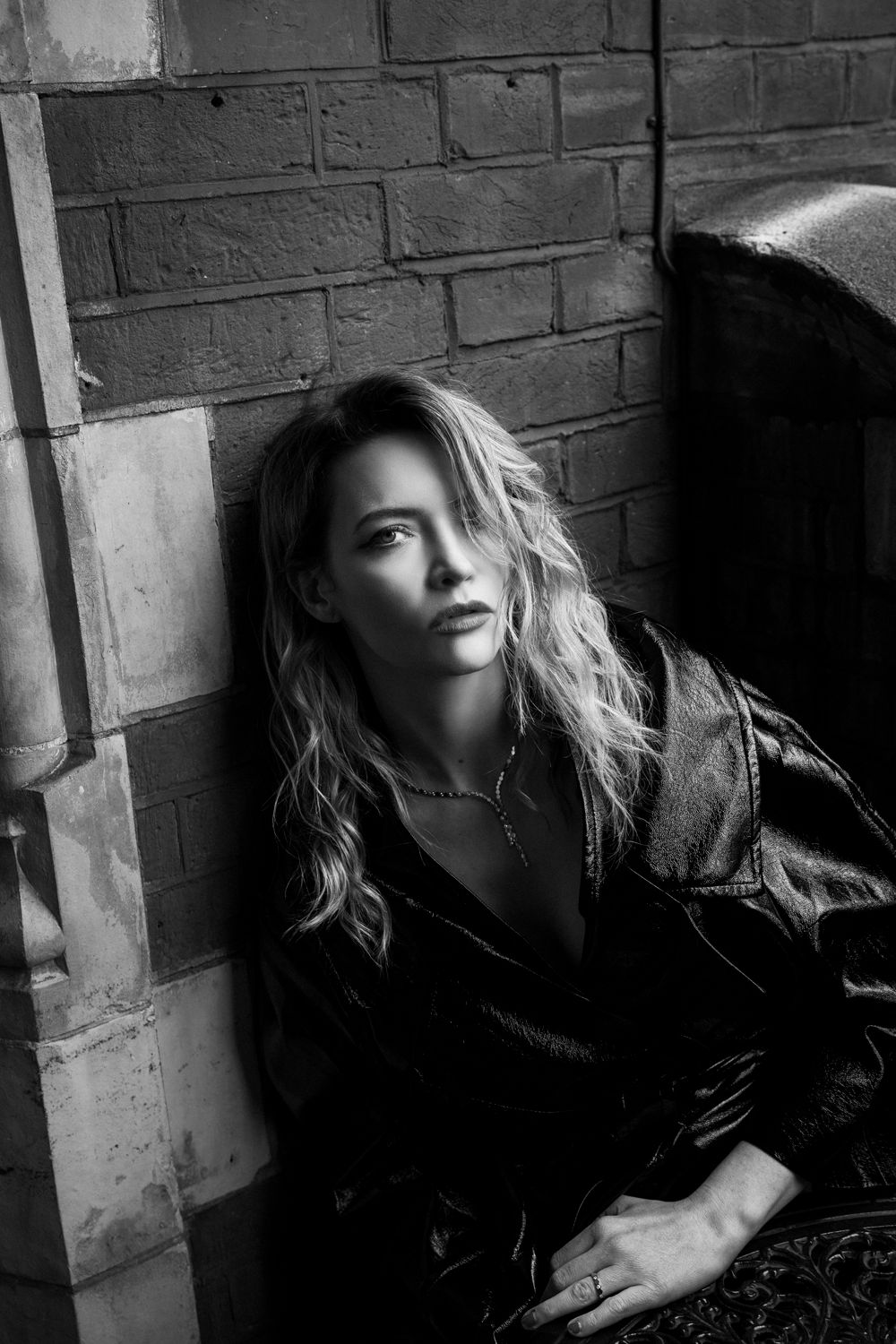
It’s funny, because you talked about reading the book to your mum, and last night I actually discussed the synapses of your book with my mum. And while I was explaining this new female-oriented world order, it dawned on me to ask you, what constitutes as female? Ten years ago, this would have been viewed as an asinine question, but now it’s given heavy consideration in society.
Right…That’s incredibly topical. I don’t actually deal with it in great detail in the book, but essentially, women have banned men from impersonating women and they have eunuchs who are elevated in society. Life is not great for men, some men are sort of gentlemen, which is the equivalent of kind of pampered house pet, trophy wife type things. Some men work on roving infrastructures, towns and kind of do manual labour, etc. some men become eunuchs, and then they have greater freedoms and privileges…It’s a pretty dark place.
I read about your romance story with Elon Musk: the two of you met, he proposed after 10 days, you were married in months, married twice and twice divorced— and I love stories like that. It’s wildly romantic. And I’d like to know where does romance and passion actually fit within this new world order?
I guess it doesn’t, really…And without spoiling the ending, it is a world in which it is quite hard…for example, there’s the male protagonist; but then it’s told from a female point of view— and she’s one of the government ministers in the cabinet, in this sort of warped cabinet— and she’s feeling regret for being a part of it, but doesn’t really know what to do with that. And she’s sort of scared of the main crazy woman, as well. But we start to hear her in a monologue, as it pertains to romance, and she just wants to be used, she wants to be taken…she’s fed up with all of these terrified men around her, who are scared of her. And she doesn’t find that attractive; so, she’s sort of wishing for some kind of archetypal male presence. There’s one point where she gets to be close to the other perspective—the other male protagonist—and they’re getting to know one another, and she’s saying, “I really want to like him, I want to find him interesting, but because he is a man, he is fundamentally inferior. And therefore, that is not that interesting, because he cannot converse on a level with me because he is thwarted by his circumstance”. And I think that was something I wanted to look at because historically, that was something that has been thwarted against women. For a lot of human history, we have not had the privilege of being educated. So men would enjoy talking to each other in their clubs, and then go home to their wives and pat them on their heads, and sort of infantilize them, and think that they couldn’t be as entertaining, or interesting as a man…And there’s all different tropes and things I try to layer in like that, that I hope some people will pick out and say, “oh, I see what she’s doing there!”.
Is there a deeper reflection that the reader might overlook, that you hope is not overlooked, but explored while reading the book?
I hope it raises questions and gives people the freedom to play with extreme ideas, without having to enact them in reality. I think it’s quite fast paced, and it’s also quite thrillery. The first line is, “This starts like a love story, but don’t be fooled.” It’s told from two different people’s perspectives, but it’s also meant to read like a love story. Basically, the male protagonist falls in love with the woman who is essentially the political despot. But he’s known her for years and years, and loves her. And so I wanted to play that trick as well, in terms of male/female relations…I hope the readers want them to get together, even though they know that she is a terrible, terrible human being, because I just wanted to show how powerful that dynamic is, and how much weight we give that storyline, even though it’s very obvious that there’s much deeper shit going on.
Wow, I’m excited to go there when I read the book. Thank you for sharing this— I enjoy chatting with you.
And I really enjoyed chatting with you, too!
PISTOL is out on Hulu and Disney Plus UK
Interview Constance Victory
photographer Lee Malone
Stylist Olga Timofejeva @ The Only Agency
Stylist Assistant Rebecca Evans-White
hair Ben Talbot @ The Wall Group
Makeup Alexis Day using Bioeffect Skincare and YSL Beauty
Location Milestone Hotel, London

